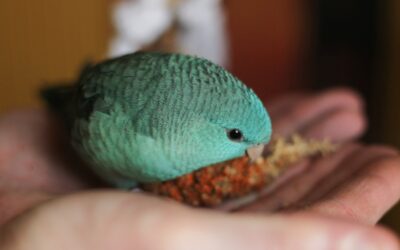If you’re thinking about setting up an aquarium for a Betta, you might be asking yourself how long you can expect your finned friend to be around for. What is the lifespan of a Betta fish?
Keep reading for everything you need to know about Betta fish life expectancy and what you can do to make sure yours lives a long and healthy life.
What is the lifespan of a Betta fish in the wild?
When talking about Betta fish life expectancy in the wild, it’s important to keep in mind that the Betta as we know it, do not actually exist in the wild. This species has been bred by humans for up to 1000 years: originally in Thailand to increase their aggression levels (in order to bet on Betta fish fighting matches, similar to cockfighting) and later for color and finnage in the West.
Wild Betta fish feature short fins, less bright coloration, and lower aggression levels. They can be found in shallow waters in Southeast Asia, which can be pretty harsh habitats with very high water temperatures as well as the risk of drying up. Still, wild Betta fish tend to live for around two years.
Did you know? Because their natural habitat is so unforgiving, Betta fish have evolved to become very adaptable. They use a special organ to breathe air in order to deal with low water oxygen levels and can handle low water quality relatively well. This is also why they’re so suitable for keeping in aquariums, but it doesn’t mean you don’t have to provide your Betta with the right care.

What is the lifespan of a Betta fish in captivity?
In captivity, the potential lifespan of a Betta fish is up to six years. That’s potential lifespan, though, and most Bettas don’t make it that long. Anywhere between 1-3 years is what you should count on: although Bettas are exceptionally durable and adaptive, they also tend to suffer from issues related to selective breeding. Additionally, many die within a few weeks or months as a result of improper care and aquarium maintenance.
So, a lot of it is in your hands. What can you do to help ensure your own Betta splendens makes it to at least three years of age and possibly even those coveted six?
Tip: Keep in mind that Betta fish sold in pet stores tend to already be 6-12 months old. The males especially tend to be around a year in age to make sure they’re mature and show the best possible color and finnage.

What influences the lifespan of a Betta fish?
Genetics
One factor you unfortunately can’t do much about is genetics. In the process of selectively breeding Betta fish for color and that typical spectacularly long finnage, longevity has been sacrificed. Inbreeding is very common and some varieties, like ‘dragon scale’ Bettas, are prone to tumors.
Genetic problems are obviously not something you can do much about once you already have your Betta. However, you can try to make a difference when you choose your fish. Try going for a short-finned Betta with basic coloration, for example, or the classic red and blue veiltail Betta. It’s been theorized these haven’t been ‘tampered’ with as much and tend to live longer as a result. That being said, there is no guarantee: when it comes to genetics, it’s purely a game of chance.
Care
Things are a bit different when it comes to the effect of care on Betta fish life expectancy. You can make a big difference here in order to maximize the chances of your finned friend living the longest possible life!
First off, we’d like to be very loud and clear about the fact that a Betta fish (or any fish for that matter) does not belong in an unfiltered, unheated bowl. This is a sure-fire way to greatly reduce the potential lifespan of your fish. Instead, keep in mind the following care guidelines:
- Betta fish need at least a 5 gallon aquarium. Some sources report 2.5 gallons as being adequate, but the larger the aquarium, the easier it is to keep the water quality stable.
- The aquarium should be filtered. It should be left to cycle with the filter turned on but no fish present for around 3-4 weeks to make sure the water is safe. Be sure to do some research on aquarium cycling and test the water quality with a liquid water test kit on a regular basis, especially in the first few months.
- The aquarium should be heated to 75-80 °F. Betta fish have evolved to adapt to the warm waters of Southeast Asia and don’t deal well at all with cold.
- Don’t overfeed your Betta fish. This can cause health issues due to obesity and also endanger the aquarium water quality. Two to five Betta fish pellets a day is enough to keep your fish going.
Don’t forget to do some extra research on Betta fish care. There are plenty of small things you can do to ensure the health of your fish and help it thrive for as long as possible!

A Betta fish aquarium should be well-planted to provide cover for your fish.
Conclusion
The oldest Betta fish have been said to have survived for almost ten years. Although it’s unlikely your fish will make it that long, around three years should be realistic! With the right care and a dash of luck, you’ll be able to enjoy your Betta splendens for years to come.







